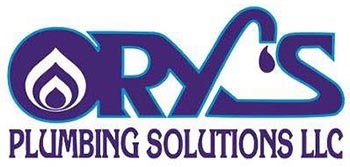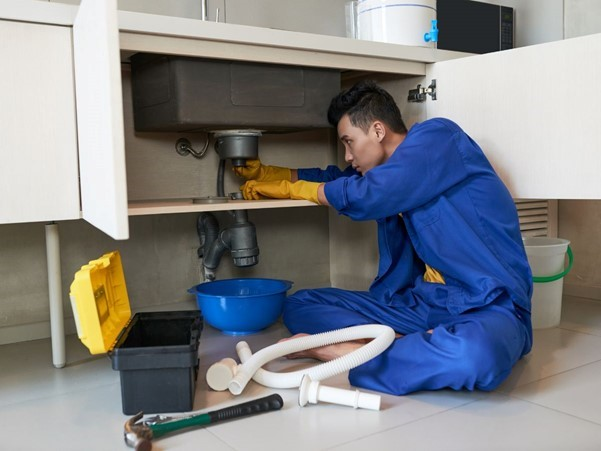How long does a water heater take to heat up?
Key Takeaways
- Water heater heat-up time varies by type and size: gas heaters are faster than electric, and tankless models provide nearly instant hot water.
- Factors like tank size, incoming water temperature, and heater condition all affect how fast your water gets hot.
- Common issues like sediment buildup or worn parts can slow down heating and waste energy if not addressed.
- Regular maintenance and simple upgrades like flushing the tank, insulating pipes, or switching to tankless can boost performance and efficiency.
Have you ever turned on the shower and had to wait forever for the water to get warm? That’s because the water heater is still working to heat the water. A water heater is a machine in your home that warms up cold water so you can take showers, wash dishes, and do laundry more comfortably.
But here’s the thing, not all water heaters work the same way. Some heat up fast, and others take a while. That’s why it’s helpful to know how long a water heater takes to heat up. If you understand your water heater better, you can save time, avoid cold surprises, and even make your home more energy-efficient.
Typical Heating Times by Water Heater Type and Size
Heating time depends a lot on the type of water heater and the size of the tank. For electric tank water heaters, a 40-gallon model usually takes between 60 to 80 minutes to fully heat up. If you have a larger 50-gallon electric tank, expect to wait 145 to 150 minutes, and an 80-gallon tank can take up to 2 hours. In comparison, gas tank water heaters heat much faster. A 40-gallon gas tank takes only 30 to 40 minutes, while a 50-gallon one can take 60 to 80 minutes, and an 80-gallon gas tank usually heats up in 60 to 70 minutes.
If you use a tankless water heater, the wait is almost nothing. These systems provide hot water in about 15 to 20 seconds since they heat water instantly when you turn on the tap. Solar water heaters, which rely on sunlight, usually heat water at a speed similar to electric models. However, on cloudy days, they might take longer—unless they have a backup heater powered by gas or electricity.
What Affects Water Heater Heat-Up Time?
When you want hot water quickly, several key things affect how fast your water heater warms up. Let’s break down the main factors:
1. Tank Size
Larger tanks hold more water, so they take longer to heat it all up. Think of heating a big bucket versus a small cup — the bigger the tank, the more time it needs.
2. Type of Heater
Gas water heaters usually heat water faster than electric ones because gas burns hotter and quicker. So, if you have a gas heater, expect your water to get hot sooner than with an electric model.
3. Temperature of Incoming Water
The water coming into your home changes temperature with the seasons. Cold water, especially in winter, takes longer to warm up, so your heater has to work harder and longer.
4. Water Heater’s Speed Score (First-Hour Rating)
This number shows how much hot water your heater can supply in the first hour after heating starts. A higher rating means it can deliver hot water more quickly.
5. Age and Condition of the Heater
Over time, sediment builds up inside the tank and slows down heating. Older or poorly maintained heaters often take longer to warm water because the sediment acts like an extra barrier.
Understanding these points helps you know why your water heater might take more or less time to deliver hot water. It can also guide you if you want to improve how fast your water heats up, either by maintenance or by choosing the right heater.
Main Types of Water Heaters and How Fast They Work
Not all water heaters work the same way. Some store water and keep it hot all day, while others heat water only when you need it. Knowing the type of water heater you have (or plan to buy) can help you understand how fast you’ll get hot water when you turn on the tap.
1. Tank Water Heaters (Gas and Electric)
Tank water heaters are the most common type in many homes. They come with a large storage tank, usually holding 30 to 80 gallons of water. These heaters warm the water and keep it hot even when you’re not using it, so it’s ready whenever you need it.
- Electric tank heaters take the longest to heat up. A typical 40-gallon electric tank can take 60 to 80 minutes to fully heat the water.
- Gas tank heaters are faster because they use a stronger heating method. A 40-gallon gas tank can heat up in about 30 to 40 minutes.
The larger the tank, the longer it takes to heat, especially if it has to refill after heavy use like back-to-back showers.
2. Tankless (On-Demand) Water Heaters
Tankless water heaters don’t store hot water at all. Instead, they heat water only when you turn on the faucet. That’s why they’re called “on-demand” water heaters.
Since they don’t have to warm up a full tank, they work much faster. In most cases, hot water starts flowing in about 15 to 20 seconds. These are great for families who need hot water often and don’t want to wait for a tank to refill.
However, tankless heaters can slow down if too many people use hot water at the same time, like multiple showers running together.
3. Solar Water Heaters
Solar water heaters use energy from the sun to warm up your water. They usually have a backup system, like electricity or gas, in case there isn’t enough sunlight.
On sunny days, they work almost as fast as electric tank heaters. But on cloudy or rainy days, it may take longer than usual to get fully hot water, especially if the backup system isn’t strong enough or isn’t turned on.
These systems are more common in places with a lot of sunlight year-round and are great for saving energy over time.
Common Problems That Can Slow Down Heating
If your water heater suddenly takes longer to warm your water, there might be some common problems causing the delay. Knowing these issues can help you spot what’s wrong and fix it faster.
1. Sediment Build-Up
Over time, minerals like calcium and lime settle at the bottom of your water heater tank. This layer, called sediment, acts like an insulating barrier. It makes it harder for the heat to reach the water, so your heater works more slowly and uses more energy.
2. Worn Out Heating Element (Electric Heaters)
In electric water heaters, a heating element warms the water. But these parts wear out with use. When they get old or damaged, they can’t heat water quickly anymore, so your water stays cold longer.
3. Broken Dip Tube
The dip tube directs cold water to the bottom of the tank to be heated. If it’s broken or damaged, cold water can mix with hot water at the top, causing the hot water to run out faster than it should. This means you might get lukewarm water sooner.
4. Dirty Gas Burner (Gas Heaters)
Gas water heaters have burners that create a flame to heat the water. If the burner gets clogged or dirty, the flame becomes weaker and heats the water more slowly, making your heater less efficient.
5. Old Heater
If your water heater is over 10 years old, it might just be getting worn out. Older heaters often lose their ability to heat water quickly and use more energy to do so.
Keep Your Water Heater Running Smoothly
To avoid these problems, regular maintenance is important. Flushing your tank once a year removes sediment buildup, and having a professional check your heater yearly can catch worn parts or dirt before they slow you down. This simple care helps your heater work faster and last longer.
Tips for Faster or More Efficient Hot Water
If you want your hot water to come faster and save energy at the same time, there are simple steps you can take. These tips help your water heater work better and make sure you don’t waste hot water.
- Set the Thermostat to 120°F
This temperature is safe for your family and helps your water heater run efficiently. Setting it higher wastes energy and can be dangerous. - Insulate the Tank and Pipes
Wrapping your water heater tank and insulating the hot water pipes keeps the heat from escaping. This means your water stays hot longer and your heater doesn’t have to work as hard. - Flush Sediment Yearly
Sediment buildup slows down heating and wastes energy. Flushing your tank once a year removes this buildup, helping your heater warm water faster. - Fix or Replace Old Parts
If your hot water takes a long time to arrive, parts like heating elements or dip tubes might be worn out. Repairing or replacing these parts can speed up heating. - Upgrade to a Tankless Water Heater
Tankless heaters heat water only when you need it, so you get instant hot water without waiting. They’re also more energy-efficient, which can save money in the long run. - Use Low-Flow Fixtures
Faucets and showerheads that use less water help reduce the amount of hot water you use. This means your heater doesn’t have to work as much, and you save on energy bills.
By following these tips, you can enjoy faster hot water and lower energy costs. Plus, regular care helps your water heater last longer. If you need help picking the right upgrades or doing maintenance, feel free to ask!
Conclusion
Knowing how your water heater works and what affects the time it takes to heat water is key to getting hot water when you need it. Different factors like tank size, heater type, water temperature, and the condition of your heater can make a big difference in how quickly your water gets hot.
By understanding these things, you can make smart choices about maintenance and upgrades. Regular checks, like flushing sediment or fixing worn parts, keep your heater running smoothly. Sometimes, upgrading to newer or more efficient models can improve how fast your water heats and save energy too.
Taking care of your water heater means more comfort for your family and better efficiency for your home. So, pay attention to your heater’s needs, do regular maintenance, and don’t be afraid to upgrade when it’s time.
Frequently Asked Questions (FAQs)
How long does a water heater take to heat up?
Most tank water heaters take about 30 to 60 minutes to heat a full tank. Gas heaters usually heat faster, around 30-40 minutes, while electric ones can take closer to an hour. Tankless heaters provide hot water almost instantly.
Why does my water heater take longer than before?
It could be due to sediment buildup, worn-out parts, a bigger tank size, or thermostat issues. These problems make heating slower and less efficient.
Is it better to have gas or electric for faster heating?
Gas water heaters usually heat water faster than electric ones because gas produces heat more quickly.
Can I speed up my water heater?
Yes! Regular maintenance like flushing the tank, fixing old parts, insulating pipes, or upgrading to a newer model can help heat water faster.
Why is my shower still cold right away?
Sometimes, hot water takes time to travel through your pipes before reaching the shower. This delay can make the water feel cold at first.



